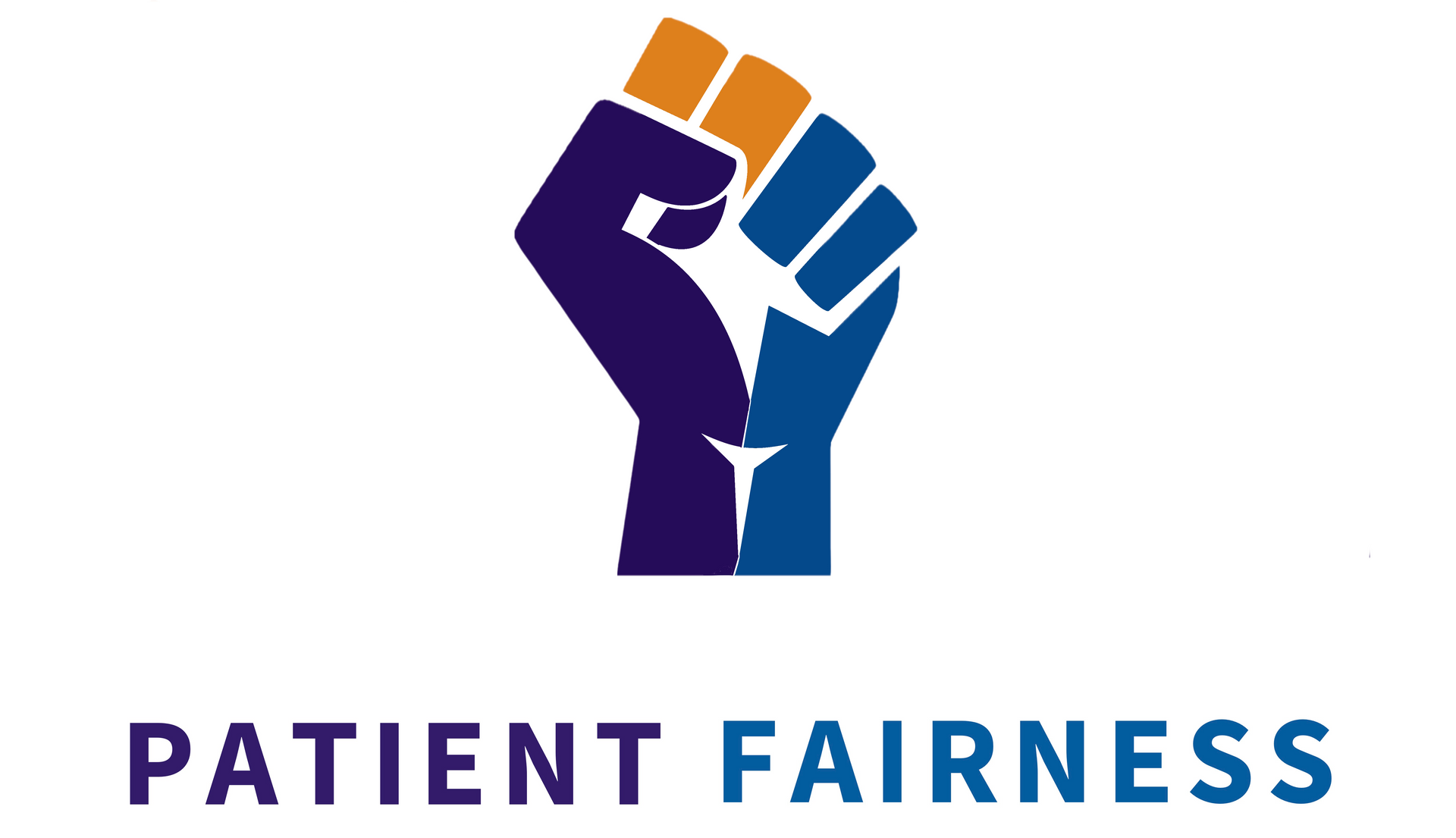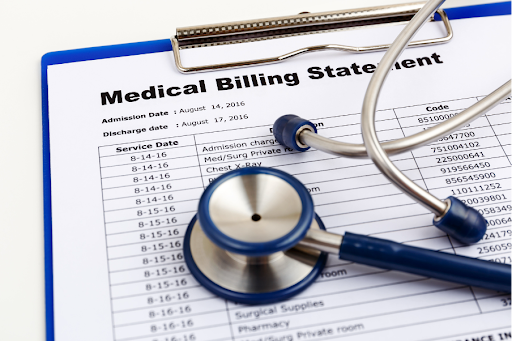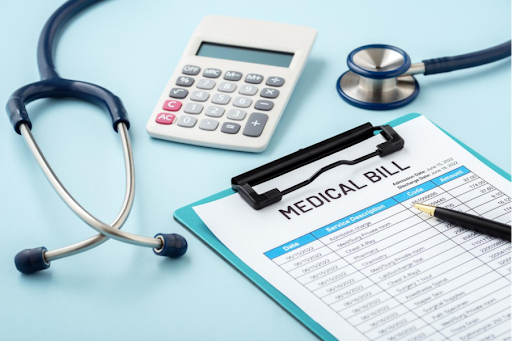How to Resolve Medical Collections: A Guide to Managing Debt from Hospitals and Providers
Debt collections and credit reporting can be significant concerns to a patient considering disputing an unfair medical bill. Many think that no matter how unfair the bill, or how strong the reasons are to challenge it, patients have no defenses if the bill is referred to collections or the debt is reported to a credit agency. These fears can cause a patient to drop a dispute before it is resolved, or deter a patient from disputing a bill in the first place.
However, even though medical debt and collections can carry risks of a damaged credit score, drained finances, and emotional stress, there are ways to deal with debt and collections so they don’t sidetrack your dispute of the underlying medical bill. Whether you're facing calls from debt collectors or just discovered an unpaid or delinquent medical debt on your credit report, understanding your rights and taking strategic action can help you resolve medical debt on your terms.
The keys to addressing medical collections and debt reporting are acting quickly, and using your dispute of the medical bill to challenge any collections and credit reporting tied to the bill. A proper dispute of a medical bill does not just serve to contest the medical bill itself. If a patient has disputed the medical bill, the medical bill dispute can also serve as the justification to dispute associated collections activity and credit reporting. Here are what you need to know about medical collections, debt reporting to credit agencies, and how a proper medical dispute can help defend a patient against such collections and credit reporting.
What Are Debt Collections and How Do They Happen?
Medical collections occur when unpaid medical bills are turned over to a third-party collection agency or sold to a debt buyer. This typically happens after the initial medical bill is past due, and the healthcare provider no longer wants to try to collect on the bill itself.
The timeline usually looks like this:
30-60 days after service – You receive the initial medical bill from the provider
60-90 days – You receive reminder notices and possibly phone calls from the provider's billing department
90-180 days – The provider may send a final notice warning that the debt will be sent to collections
180+ days – The debt is referred to a collections agency or sold to a debt buyer
If a bill is past due, the provider or collections firm may try to report debt to a credit agency. However, persons may dispute erroneous credit records to the agency (e.g. Equifax, TransUnion) and ask it to correct the error.
Not all unpaid medical bills are referred to collections. Many are not. The practice varies by the provider and nature of the bill.
Your Rights When Dealing with Medical Collections
Federal and state laws give patients significant protections when dealing with medical debt collectors. Knowing these rights is essential before you engage with any collection agency.
The Fair Debt Collection Practices Act (FDCPA)
This federal law prohibits debt collectors from using abusive, unfair, or deceptive practices. Under the FDCPA, collectors cannot:
- Call you before 8 a.m. or after 9 p.m.
- Contact you at work if you've told them your employer doesn't allow it
- Harass you with repeated calls or use profane language
- Threaten you with actions they cannot legally take
- Misrepresent the amount you owe or the consequences of non-payment
- Discuss your debt with anyone other than you, your spouse, or your attorney
Validation Rights
Within five days of first contacting you, a debt collector must send a written validation notice that includes:
- The amount of the debt
- The name of the creditor you owe
- A statement that you have 30 days to dispute the debt
- Information on how to request verification of the debt
If you dispute the debt in writing within 30 days, the collector must stop collection activities until they provide verification. This is a critical protection to use.
How to Dispute Debt Associated with a Disputed Medical Bill
Effectively disputing a medical debt tied to a disputed medical bill requires a strategic approach. Follow these steps to maximize your chances of success.
Step 1: Debt Verification from Collections Firm
A debt collector must give written notice of its intent to collect a debt, a debt validation letter. This debt validation letter starts the collections process, and it is very important to respond to the validation letter as soon as possible, and within 30 days of its receipt.
Step 2: Request Debt Validation
Within 30 days of receiving a debt verification notice related to a medical bill, reply to the collections firm with a debt validation letter. Your validation letter should:
- State that you dispute the debt
- State that: (1) You have disputed the medical bill associated with the debt. Include a copy of the letter of dispute for the bill. (2) Assuming the dispute is not resolved, the provider has not reasonably addressed the reasons for dispute of the bill, and that you do not recognize any debt associated with the bill until the dispute is resolved. (3) The collections firm must provide to you documentation that the provider has reasonably addressed the medical bill dispute’s concerns for you to consider the debt to be valid.
- Ask for the name and contact information of the original creditor
- Ask for proof that the collector has the legal right to collect debt in your state
Do not acknowledge that you owe the debt or make any payment. The collector must stop collection activities until they provide proper validation.
Step 3: Continue to Cite the Medical Bill Dispute
Some collections firms may reply to your validation letter claiming that they have confirmed the debt with the medical provider or other current holder of the debt, and that the debt is valid. If your dispute of the medical bill is not resolved, you should repeat your demand that the collections firm document that the provider has reasonably addressed the medical bill dispute’s concerns for you to consider the debt to be valid. The firm will not be able to do so if you know that the provider has failed to do so. Your response should state that because Debt Collector has not documented that the provider has responded satisfactorily to your medical bill dispute, if it continues attempting to collect on this debt, or seek judgment for payment of the debt, it will be in violation of the Fair Debt Collection Practices Act.
Depending on the persistence of the collections firm, you may need to respond to multiple communications from the collections firm trying to claim it has verified the debt, even though it has not documented that the provider has reasonably addressed the medical bill dispute’s concerns, or that the dispute is resolved.
What Not to Do When Dealing with Medical Collections
Certain actions can weaken your position or make your situation worse:
Don't ignore collection notices – Ignoring collections doesn't make them disappear and can lead to lawsuits.
Don't make partial payments without a settlement agreement – Payments can restart the statute of limitations in some states, giving collectors more time to sue.
Don't admit the debt is valid – Avoid language like "I owe this but can't afford it." Stick to disputing unless you've verified accuracy.
Don't give collectors electronic access to your accounts – This gives them the power to withdraw funds without your permission.
Don't communicate by phone only – Always follow up verbal conversations with written letters to create documentation.
Medical Debt and Your Credit
Consumer credit reports and scores can impact qualifications for, and the terms of, loans and mortgages. They can even be used in employment hiring decisions.
Medical debt can impact your credit differently than other types of debt:
- FICO 9 and VantageScore 3.0/4.0 (newer credit scoring models) weigh medical debt less heavily than other debts
- Some lenders ignore medical debt entirely when evaluating applications
- Paid medical debt are removed immediately from your credit report (as of July 2022)
It is important to protect your credit reports and scores against erroneous medical debt, including debt associated with a medical bill that you have properly disputed, and is not resolved.
Recent Credit Reporting Changes
As of July, 2022, the three major credit bureaus (Equifax, Experian, and TransUnion) made significant changes that benefit patients:
- Medical debts under $500 no longer appear on credit reports
- Paid/satisfied medical debts are not included in, or have been removed from, credit reports immediately (previously they remained for seven years)
- There is a one -year waiting period before unpaid medical debts appear on your report (up from six months)
These changes give you more time to resolve medical debt before it damages your credit.
State-Specific Protections
Thirteen states offer additional protections:
As of mid-2025, these 13 states have enacted laws that limit or ban the reporting of medical debt in consumer credit files:
- California
- Connecticut
- Colorado
- Illinois
- Maryland
- Minnesota
- New Jersey
- New York
- Oregon
- Rhode Island
- Vermont
- Virginia
- Washington State
Some states also have additional protections against medical debt collections practices that go beyond the federal Fair Debt Collection Practices Act. Check your state's laws, as you may have stronger protections than federal law provides.
How to Address Negative Credit Reporting Associated with a Disputed Medical Bill
You want to protect yourself if a provider or collections firm reports negative activity to a credit agency related to a medical bill still in dispute, or in a manner prohibited by federal or state laws. The three major credit reporting agencies - Equifax, Experian, and Trans-Union - allow persons to dispute inaccuracies on reports.
If you identify medical debt on a credit report associated with a (1) medical bill that you have disputed with the provider, and (2) possibly a debt you have disputed with a collections firm, then you want to use the credit agency’s dispute process, and cite:
- your dispute of the medical bill (include a copy of the letter of dispute);
- that the provider has not addressed the concerns in your dispute;
- that the dispute is still active; and
- your dispute of the debt with the collections firm (include a copy of your debt validation letter to the collections firm).
If the debt reporting violates any of the general standards for medical debt reporting (e.g. no debt <$500, <1 year old) you may use the credit agency’s dispute process, and cite the specific violations.
When Medical Collections Lead to Lawsuits
Lawsuits for medical debt collections happen with only a small percentage of bills. However, some providers or collections firms may file a lawsuit related to medical debt. You should consult an attorney or seek other legal advice in such an event of legal action. The records of your dispute of the medical bill, and further dispute of any related debt and credit reporting, can be very helpful in defending against such a suit.
Take Control of Your Medical Collections
Medical debt and collections can feel overwhelming, but you have more power than you realize. Between federal protections, state laws, credit reporting changes, and a strong spine, patients can strategically use a proper dispute of an underlying medical bill as further defense against inappropriate debt collections and credit reporting.
The key is acting quickly, knowing your rights, and using a strategic approach that puts you in the strongest possible position. A patient can follow this advice on their own. Alternatively, Patient Fairness can guide and assist patients to use these strategies not just to protect themselves against debt and collection, but to get the underlying medical bill reduced or forgiven based on what the patient thinks is fair.
Start your medical bill dispute today with Patient Fairness’s free Problem Medical Bill Assessment .
Don't let medical debt and collections control your financial future. Take the first step toward resolution today.
Patient Fairness helps patients nationwide dispute medical bills. Our flat-fee service provides the tools, templates, and guidance you need to challenge unfair medical bills.










